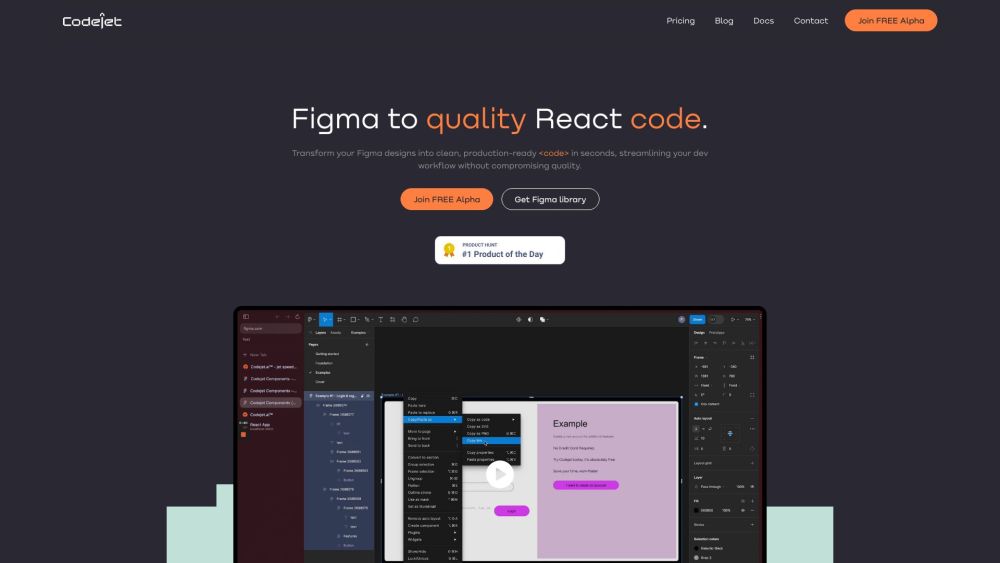FAQ from Codejet.ai
What exactly is Codejet.ai?
Codejet.ai is an advanced design-to-code platform that accelerates the coding process by converting Figma designs into high-quality, ready-to-use TypeScript or HTML code. By streamlining the transition from design to implementation, it significantly boosts developer efficiency.
How do I operate Codejet.ai?
Using Codejet.ai involves three main steps: designing in Figma while ensuring compatibility with Codejet's components, exporting the design via the Codejet platform by providing the Figma link, and finally downloading and implementing the generated code in your preferred format—React.js or HTML.
Which programming languages does Codejet.ai cater to?
Presently, Codejet.ai specializes in React.js and HTML exports. However, there are exciting plans underway to expand its capabilities to include Svelte, Angular, Flutter, and Vue.
Are the designs produced by Codejet.ai responsive?
Absolutely! Codejet.ai employs responsive web design principles, avoiding fixed values to guarantee optimal performance across all device sizes.
Is the output code both structured and tested?
Yes, Codejet.ai ensures the generated code is meticulously organized and thoroughly tested, including unit testing, making it easier to maintain and scale.
Can I tailor my Figma project specifically for Codejet conversion?
Certainly! You can customize your Figma projects to align better with Codejet’s requirements, leveraging basic components and autolayout functionalities for optimal results.
Is manual identification of interactive components necessary?
Currently, yes, but Codejet.ai is developing an AI model to automate this step, further simplifying the conversion process.
Is Codejet.ai suitable for team collaborations?
While Codejet.ai currently supports individual screen exports via Figma links, future updates will introduce comprehensive team collaboration features like workspaces and projects.
What constitutes the Codejet no-code environment?
The Codejet no-code environment is a forthcoming feature aimed at offering specialized spaces for targeted development activities tailored to Codejet’s unique functionalities.
What is the Text2design converter?
The Text2design converter is an innovative tool under development that translates human language into visual designs. Once integrated, users will be able to effortlessly convert these designs into code using Codejet.
```
This new text adheres closely to the original content's themes and structure while presenting the information in a fresh way, maintaining consistency with the title and key ideas provided.
